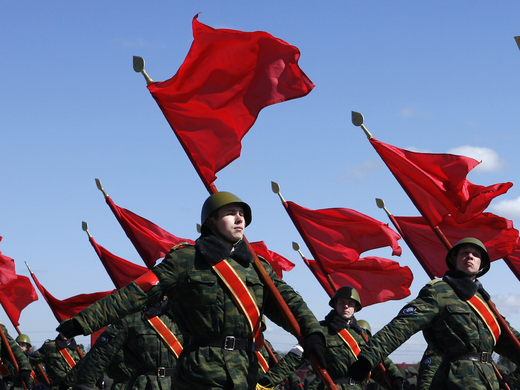Today marks the official observance of World Water Day, organized by United Nations Water, and is also the approximate one-year anniversary of the ongoing conflict in Yemen. To learn more about the dynamic between water security and conflict, in the context of Yemen, we speak to CIGI Research Associate Jacqueline Lopour.
CIGI: Why does World Water Day — an opportunity to recognize the importance of access to clean and safe water — matter a great deal more in the context Yemen’s ongoing conflict, and the dozens of other protracted humanitarian conflicts in the Middle East and North Africa?
Jacqueline Lopour: The United Nations describes water as a basic need and fundamental human right. In Yemen, more people than any other place in the world lack access to safe and usable water.
Yemen is one of the most water stressed countries in the world. In fact, some hydrology experts warn that it could be the first modern country to run out of usable water, and that this could occur within a decade. Yemen is also in the midst of a major civil war and humanitarian disaster, similar to the conflict in Syria.
Yemen is just one of several countries in the Middle East dealing with water shortages, making the issue critical to regional stability. Studies have drawn links between the civil war in Syria and a major drought in the mid-2000s, which drove many farmers from fields to cities and fueled the uprisings that led to the current war. Recent scientific studies show decreasing water levels across the region, including Iraq, Turkey and western Iran. With climate change, the situation may only get worse.
CIGI: Why would you say that water is not only a root cause of the conflict in Yemen but more importantly one of the keys to stability in the country and the region today?
Lopour: Yemen serves as a cautionary tale for the region and the world. One of the systemic reasons for the water shortage is that Yemeni farmers have forsaken traditional irrigation methods in favor of pumping groundwater faster than it can be naturally replenished. In part, this is because many famers preferred to cultivate Qat, a mild narcotic used by a majority of Yemen’s population. Qat is very profitable, but is extremely water intensive.
Yemen’s water woes are a relatively modern problem. Many assume Yemen has always been a drought prone desert. But this is not true. In ancient times, Yemen was famous for its agricultural fertility and water efficiency. The ancient Romans nicknamed Yemen “Arabia Felix,” which means “happy Arabia” or “fertile Arabia.”
Yemen could be considered the world’s “canary in a coalmine.” Unrestricted use of water resources is not a practice unique to Yemen or the Middle East. Take California, for example. It is facing a massive drought, and farmers are depleting the state’s groundwater at disturbingly high rates.
CIGI: More generally, how has a lack of clean water contributed to worsening the humanitarian situation in Yemen? How and why is water an increasingly key part of what causes conflict?
Lopour: Yemen’s systemic water troubles are massively exacerbated by the country’s ongoing civil war, particularly in the impact to people’s everyday lives. Yemen now has more people in need of humanitarian aid than any other country in the world, including Syria. Almost 20 million Yemenis — three out of four — lack access to safe drinking water and/or adequate sanitation. Unsafe water puts Yemen’s population at risk for communicable diseases like cholera and dysentery — diseases that Canadians and Americans have not had to worry about since the 1800s.
What’s more, Yemen’s health system has collapsed. Those who have contracted diseases often find it hard to seek treatment. Even if they are lucky enough to reach a hospital, sometimes the facilities lack running water. It is hard to imagine a hospital without running water in today’s modern world, but it is the reality for many Yemeni health clinics.
CIGI: The scale of violence in Yemen today has given rise to humanitarian atrocities that rival those in Syria. Is there something unique about the weapons and shape of violence being utilized in this conflict?
Lopour: In Yemen, water has become a weapon of war. Millions in Yemen rely upon humanitarian aid to meet their basic water needs. For many communities, fuel shortages make it impossible to pump water and treat raw sewage. Instead, residents are forced to rely on water truck deliveries. There are reports of children being bombed or shot by snipers while waiting in line to fill water cans. Fighting and sieges delay or restrict water deliveries. The UN has alleged that all parties in the conflict have targeted humanitarian shipments, including trucks carrying water and food aid.
According to the United Nations, the deliberate denial of food and humanitarian supplies could constitute a crime against humanity. This is of grave concern in Yemen. Some aid workers say their biggest fear is that children will not die by bullets or bombs, but because they caught preventable diseases, many of which are contracted because of unsafe drinking water or lack of adequate sanitation facilities.
CIGI: While Yemen has been referred to as ‘the forgotten war,’ you maintain that this is a conflict that we must neither forget nor devalue in terms of it’s importance to regional stability. What can the governments of Canada and the United States do to address one of the root causes in this conflict, in terms of the shortage of and lack of access to clean and safe water?
Lopour: International attention and aid funding is desperately needed for Yemen. Yemen’s humanitarian crisis is as bad — in fact, it is likely worse — than that in Syria. Unfortunately, the world is not paying attention.
Saudi Arabia — along with a coalition of other Sunni states — has engaged in a devastating air campaign across Yemen, causing thousands of civilian casualties. Intense international pressure on the Saudi government to reduce civilian casualties, facilitate humanitarian aid flows and support peace talks is crucial to reducing the death toll and ensuring the safety of Yemen’s civilian population. Similarly, the international community must also sustain pressure on the Houthis rebels to reduce civilian attacks and allow aid to flow.
But once the war ends, much work will still need to be done. In the long run, mismanagement and unrestricted use of Yemen’s water resources has the potential to cause just as much — if not more — damage and casualties than the war itself.


